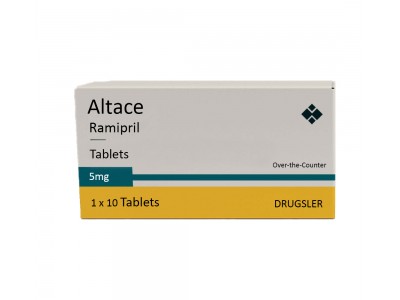Understanding the Risks of Combining Altace with Other Blood Pressure Medications
When managing high blood pressure, many patients turn to a variety of medications to control their condition. Altace, an ACE inhibitor, is commonly prescribed to treat high blood pressure, but it is important to understand the risks of Altace with blood pressure medications when taken together with other drugs. This article provides a comprehensive guide to the potential dangers, side effects, and necessary precautions when combining Altace with other medications.
What is Altace?
Altace (ramipril) is an ACE inhibitor used primarily to treat high blood pressure and prevent heart failure-related complications. It works by relaxing blood vessels, making it easier for the heart to pump blood. However, as with all medications, it can interact with other drugs, causing complications.
The Risks of Combining Altace with Other Blood Pressure Medications
When combining Altace with other blood pressure medications, the primary concern is the increased risk of low blood pressure (hypotension). Blood pressure may drop too much, causing dizziness, fainting, or a dangerous drop in heart rate. This is especially true when Altace is mixed with other antihypertensives, such as diuretics or calcium channel blockers.
Drug Interactions to Watch Out For
Before using Altace and beta-blockers together, it’s crucial to consult a healthcare provider. Both drugs lower blood pressure, and when taken together, they may enhance each other's effects, leading to significant drops in blood pressure. In some cases, this combination could result in Altace side effects with other medications such as fatigue, dizziness, or even fainting.
Safety Considerations When Mixing Altace with Other Blood Pressure Medications
When considering Altace and ACE inhibitors together, healthcare providers may need to monitor kidney function and blood pressure regularly. Some patients may experience kidney-related complications, particularly if other medications, such as non-steroidal anti-inflammatory drugs (NSAIDs), are also used.
What to Do if You Experience Side Effects
If you experience any severe side effects when taking Altace with other blood pressure meds, contact your healthcare provider immediately. Signs of a serious side effect include swelling of the face, lips, tongue, or throat, which can cause difficulty breathing. These reactions are rare but require urgent attention.
Consultation with Healthcare Providers
It is vital to work closely with your healthcare provider when using multiple blood pressure medications. They can help assess the Altace safety when mixed with other drugs, and ensure the combination does not interfere with other aspects of your health, including kidney function and electrolyte balance. Taking medications inappropriately can worsen your condition rather than improve it, so always follow professional guidance.
Conclusion: Is Combining Altace with Other Blood Pressure Medications Safe?
While Altace is an effective medication for managing high blood pressure, its interaction with other medications requires careful consideration. The risks of combining Altace and blood pressure medications are real, but with the proper precautions and regular monitoring, it is possible to use these medications safely under the supervision of a healthcare professional. Always consult your doctor before making changes to your medication regimen.

